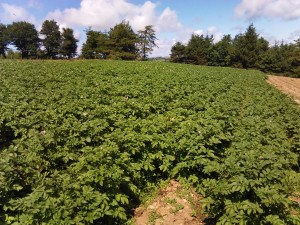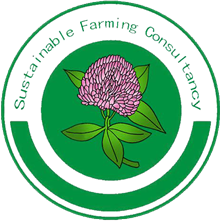Fragile Food Systems
I spend a lot of time thinking about the agriculture in Wales, and I spend a lot of time listening to Welsh Government and other commentators on its future. One word crops up again and again and that word is resilience. And rightly so, for our food and farming system is fragile in the extreme.
Consider this. Practically all Welsh agriculture is based on just 3 products; lamb, beef and milk, and we export nearly all of it. Any ‘shocks’ to any one of these – price volatility, collapse of export markets, animal health crises, fluctuations in exchange rates, regulation changes, exit from the EU – have disproportionately larger impacts on Wales compared to other countries with a wider production base. Of course many of these things are not independent of one another, so they can and do happen all at the same time to more than one sector.
In case anyone thinks I’m having go a livestock producers, I’m not. They are vital for nourishing the nation, cycling nutrients on the farm, habitat management, biodiversity and a great deal more. However, if we want a more resilient system, basing it on a very small number of products, whose fortunes are dictated by factors by and large outside our sphere of influence, is not the way I would go about it.
Diversifying the production base by strengthening arable and horticultural production, has to be the way to go, and there is massive potential to do so in Wales. There are over 4,000 ha of Grade 1 and 2 land in Wales, over 95% of which is currently under grass, and many more thousands more of Grade three land that could grow crops, albeit in more challenging conditions. We grew crops in these areas in the past, and there is no technical reason why we could not again.

Seed potatoes on Penbryn Farm, Tregaron
I don’t pretend that it’s easy – I’m in the process of introducing horticulture to an upland sheep system, so I know! Access to machinery, lack of skills and knowledge after a generation of specialised livestock production, the relatively high risk associated of horticultural enterprises and other factor conspire to make to it all rather challenging.
But it is absolutely necessary. No one really thinks the status quo is satisfactory. Over the 14 years I have been working in Wales I can count on the fingers of one hand the number of farmers I’ve spoken to who think that specialised beef and sheep production is a sound foundation for a profitable, and therefore resilient, business, and the annual farm income figures from the Farm Business Survey at IBERS tend to bear me out on this.
If our farming and food businesses are going to live, thrive and survive into the future – and our communities with them – we have to make fundamental changes. We’d be well advised to start now, before the wheels really come off.

One comment on “Fragile Food Systems”
T,well said.4000 hectare figure notable.More crops,more trees,more jobs ultimately.I don’t think anyone would object to profitable new opportunities.Getting serious about Oat production and some processing kit in Wales might be a good place to start?